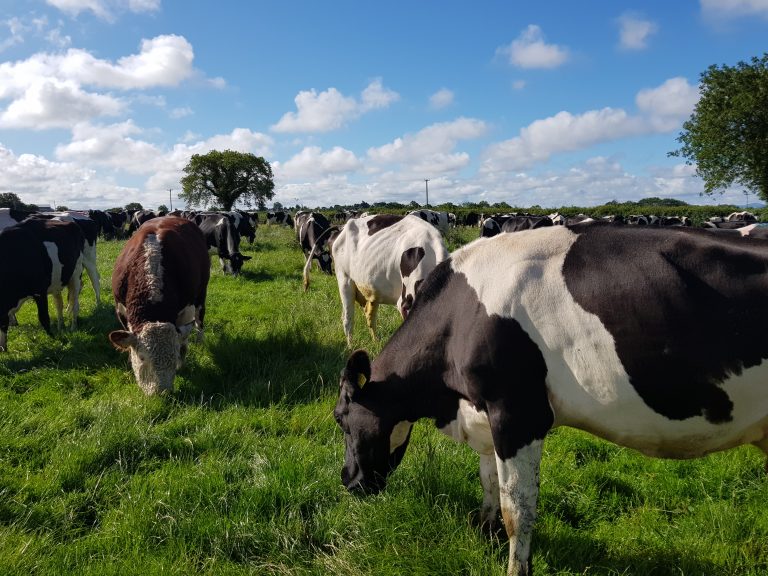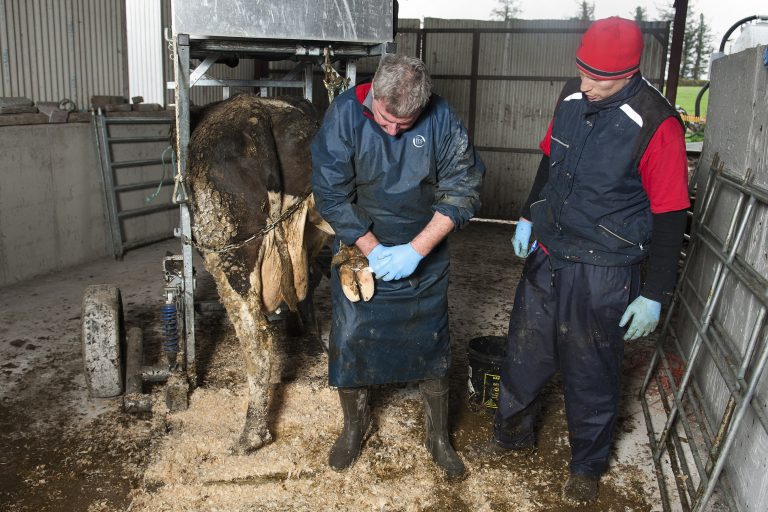Many farmers across the country were left reeling after the arrival of Storm Ellen. Leaving a trail of destruction in its wake, farmers experienced fallen trees, damaged out buildings or in some cases loss of electricity. These unpredictable storms can cause severe implications for farmers including concerns over damages to infrastructure and animal welfare.
We encourage farmers to think about preparations for poorer weather conditions in advance. With the current climate of unpredictable weather, farmers need to take extra caution to ensure the safety of themselves, their workers, and their livestock. Farm tasks that are taken for granted can become difficult and in some cases, hazardous in bad weather. By preparing in advance and taking some simple steps, farmers can reduce the impact of storms.
- Make time to take an inventory of your farm. Make a list of items that you need, need to repair or training that you need to undertake.
- If more storms are forecast for the coming weeks, it is important to ensure that fields and paddocks are safely fenced. Check for areas that wire could fall and carry out any repairs needed. FRS Fencing provide DIY fencing equipment so you can stock up on all your fencing essentials. They also supply a check and repair service for effective fence maintenance.
- For the upcoming Winter months, ensure that there is an adequate supply bedding for your farm. Consider that it takes extra bedding for an animal to maintain their body temperature in cold weather.
- Keep all access routes and farm lanes clear. This is essential to travel around the farm easily but also encase you have to move animals to a safer field or back to the yard to be housed.
- We would also recommend performing a full review of all machines on the farm. If machines are regularly serviced there is a lesser chance of any unexpected breakdowns.
- Sheds, out houses and yard gates are also important to keep well maintained. Check for loose slates or other items that could come loose in a storm. Make timely repairs and keep in mind that daylight hours will be reducing.
- If you are purchasing any additional items to help during bad weather i.e generators, allow for time to get it installed properly and perform a test run.
- Make sure all feeds are well secure, in a dry area and accessible at all times.
- If undertaking chainsaw activity, ensure that you are following safety guidelines. Risk of accidents can be greatly reduced by getting training, following strict chainsaw safety guidelines, and wearing proper Personal Protective Equipment (PPE) at all times.
- Keep yourself constantly informed of the weather. Begin preparation as soon as possible if poor weather conditions are important.
Safety in poor weather conditions is a priority, listen to the advice of the emergency services and do not take risks. If you are leaving to assess damage, ensure you have a fully charged mobile phone and tell someone of where you are going and how long you will be.
If you require chainsaw training, FRS Training have a wide range of Chainsaw courses available and will tailor courses to meet the needs of participants and can conduct the training locally to suit small or large groups. Visit www.frstraining.com for more information.




